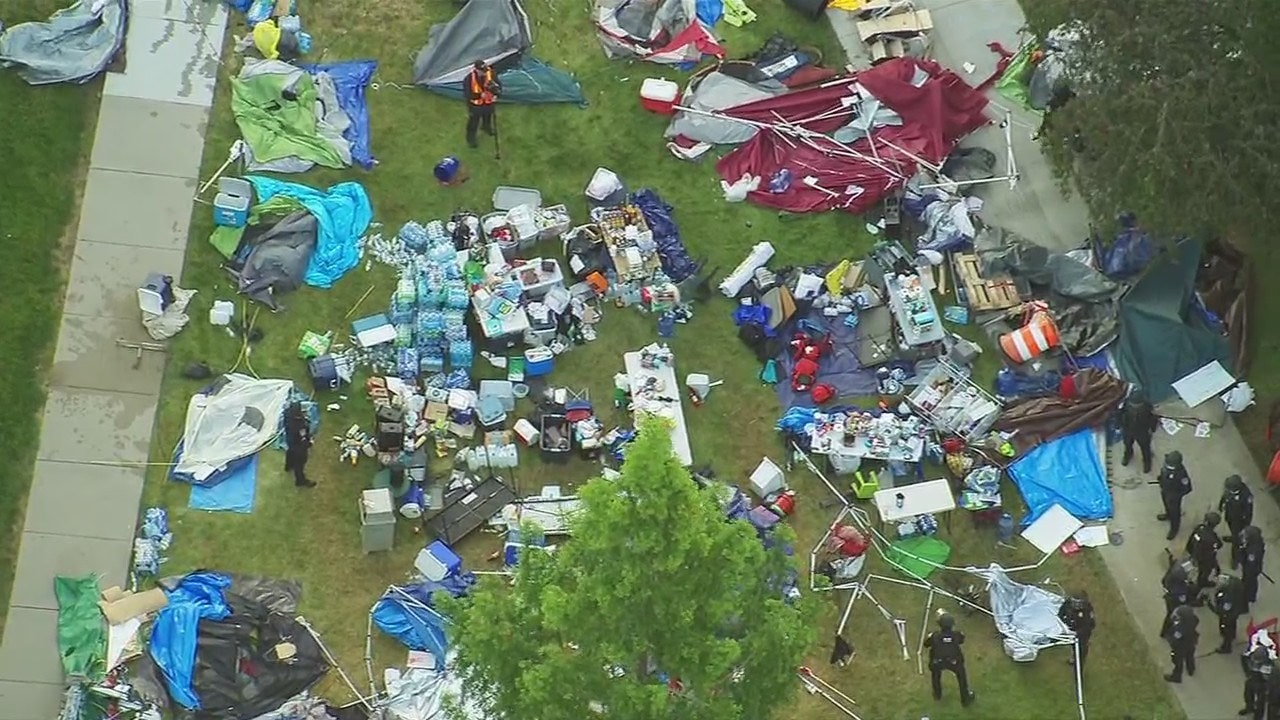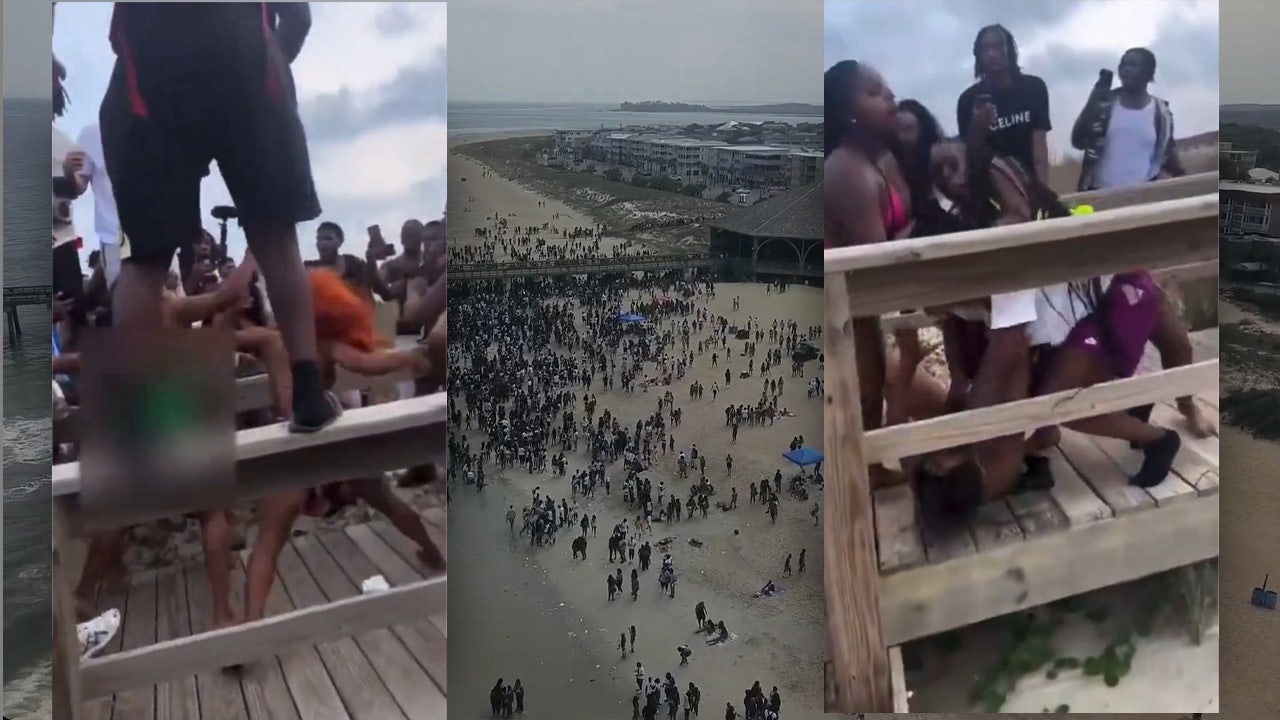
President Emmanuel Macron’s risky decision to call snap legislative elections in France has backfired badly, enabling the far right to dominate the first round of voting held on Sunday.
But the French will return to the polls next Sunday for a second round of voting to choose their representatives in the 577-seat National Assembly, the country’s lower and more prominent house of Parliament.
France is in unpredictable territory, with the future of Mr. Macron’s second term at stake. The nationalist, anti-immigrant National Rally, led by Jordan Bardella, has never been closer to potentially governing the country.
Here is what you need to know about the elections.
Why did Macron call for snap elections?
When Mr. Macron was elected to a second term in 2022, his party failed to win an outright majority. The centrist coalition he formed has since governed with a slim majority, but it has struggled to pass certain bills.
Then, last month, the National Rally surged to first place in elections for the European Parliament, while the centrist coalition led by Mr. Macron’s Renaissance party came in a distant second.
After those results, which left Mr. Macron a reduced figure with three years left in his term, the president dissolved Parliament. He was under no obligation to do so, but he believed that a dissolution had become inevitable — opposition lawmakers were threatening to topple his government in the fall. He said he felt that a snap election was the only way to respect the will of the people.
“This dissolution was the only possible choice,” Mr. Macron wrote in a letter to French voters last month. He is the first president to dissolve the National Assembly since 1997.
Official results published by the Interior Ministry showed that the National Rally party and its allies won about 33 percent of the vote in the first round.
The New Popular Front — a broad alliance of left-wing parties that includes the Socialists, the Greens, the Communists and the hard-left France Unbowed party — got about 28 percent.
Mr. Macron’s centrist Renaissance party and its allies only won about 20 percent.
The participation rate for the first round was nearly 67 percent, an unusually high number that reflected intense interest in a high-stakes race and a belief among voters that their ballot could fundamentally alter the course of Mr. Macron’s presidency.
The elections have already profoundly rocked French politics, fostering rare unity on the left, creating chaos in the mainstream right and fraying Mr. Macron’s centrist alliance.
Antisemitism has been a major theme, as have economic concerns. The race has focused attention on France’s fragile finances and the prospect of legislative gridlock that could undermine attempts to address it.
What’s at stake?
The presidency is France’s most powerful political office, with broad abilities to govern by decree. But the approval of Parliament, and especially the National Assembly, is required on most big domestic policy changes and key pieces of legislation, like spending bills or amendments to the Constitution.
Unlike with the Senate, France’s other house of Parliament, National Assembly members are elected directly by the people and can topple a French cabinet with a no-confidence vote. The lower house also has more leeway to legislate and typically gets the final word if the two houses disagree on a bill.
Most importantly, the composition of the National Assembly determines how France is governed.
If a new majority of lawmakers opposed to Mr. Macron is ushered in, he will be forced to appoint a political adversary as prime minister in what is known as a “cohabitation,” substantially shifting France’s domestic policy and muddling its foreign policy.
Only the National Rally appears in a position to secure enough seats for an absolute majority. If it does, Mr. Macron would have no other practical choice than to appoint Mr. Bardella as prime minister. He could try to appoint someone else, but it would run counter to the election results and National Rally lawmakers could quickly topple that person in a no-confidence vote.
What is the National Rally and who are its leaders?
The National Rally is France’s most prominent nationalist, anti-immigrant far-right party. It has won local elections, and it sent nearly 90 lawmakers to the lower house in 2022, but it has never governed the country.
Originally called the National Front, it was founded in 1972 and included former collaborators with the Nazis during World War II. The party’s founding president, Jean-Marie Le Pen, was openly racist and publicly diminished the Holocaust.
Marine Le Pen, Mr. Le Pen’s daughter, took over in 2011 and worked to “undemonize” the party. She distanced herself from her father’s antisemitic statements and even ousted him in 2015. She also broadened the party’s platform to include pocketbook issues.
But some members continue to come under fire for racist, antisemitic or homophobic comments. The party wants to drastically reduce immigration, make it harder for foreigners to become French and give French citizens priority over non-French residents in areas like social benefits.
Ms. Le Pen ran for the French presidency in 2012, 2017 and 2022, but lost all three times, twice against Mr. Macron.
Mr. Bardella, Ms. Le Pen’s protégé, officially took over as the party’s president in 2022. The son of Italian immigrants, Mr. Bardella, 28, grew up in the Parisian suburbs and was recently re-elected as a member of the European Parliament. Mild-mannered and impeccably dressed, he embodies the National Rally’s efforts to remake its image.
What happens if no clear majority emerges?
That is uncertain. Mr. Macron would have limited options in terms of how to proceed.
The president could try to build a new coalition, but France is not accustomed to doing so, unlike Germany. And the three main blocs expected to prevail in the lower house — the far right, the left-wing alliance and Mr. Macron’s centrist coalition — have radically different agendas and, in some cases, have expressed extreme animosity toward each other.
It is unclear how France moves forward if no working majority can be cobbled together.
One possibility being discussed by analysts is having a caretaker government that handles the day-to-day business of running the country until there is a political breakthrough, as has happened in Belgium. But this, too, would be a departure from French tradition.
If no clear majority emerges, the country could be headed for months of political deadlock or turmoil. Mr. Macron, who has ruled out resigning, cannot call new legislative elections for another year.
How does the two-round election work?
France’s 577 electoral districts — one for each seat — cover the mainland, overseas departments and territories, as well as French citizens living abroad. France awards seats to candidates who get the most ballots in each district.
Any number of candidates can compete in the first round in each district, but there are specific thresholds to reach the second round.
While in most cases the runoff will feature the top two vote-getters, it might feature three or even four candidates if they are able to get a number of votes equal to at least 12.5 percent of registered voters in their districts.
This is usually rare, but high participation makes it more likely, and there were over 300 three-way runoffs after the first round last week. Many parties — especially on the left — said they would pull out third-place candidates from races where the National Rally was ahead, to avoid splitting the vote and to help prevent the far right from winning an absolute majority.
Whoever wins the most votes in the runoff wins the race.
Under some conditions, a candidate who gets more than 50 percent of the vote in the first round wins outright. But only 76 of the country’s 577 legislative seats were won that way on Sunday.





